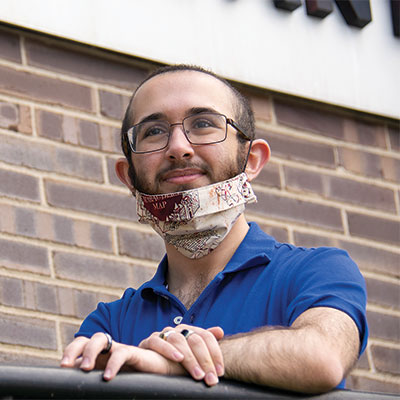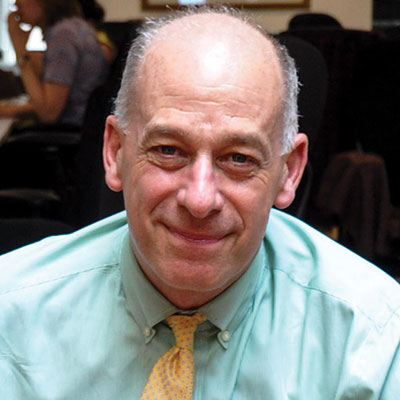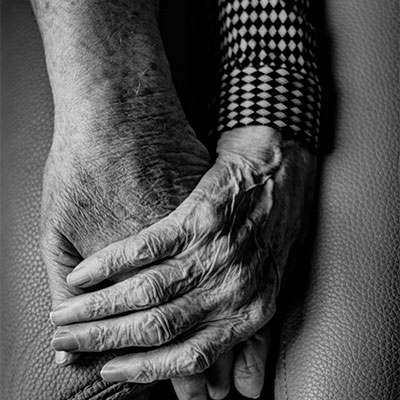the Commissioner
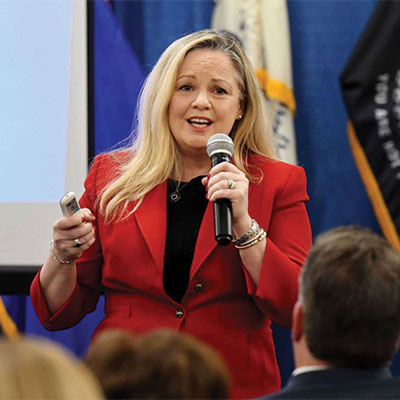
When COVID-19 arrived in Albany in early March, Dr. Elizabeth Whalen and her ACDOH staff immediately began “investigating cases and contact tracing – notifying people who may have been exposed to the virus at work and in school.” IN HER OWN WORDS, she reflects on the department’s response to this public-health emergency.
ACDOH has trained on pandemic response since before the early 2000s, when I started working here as a medical director. Our Division of Public Health Emergency Preparedness conducted drills and created guidelines. Our Division of Public Health Education was ready with messaging for the public, and our excellent Epidemiology staff had expertise in disease investigation and contact tracing.
Before our first case, we had a public forum with Albany County Executive Dan McCoy, legislators, and the media to discuss the likely course of events once we had cases in Albany. We also issued CDC guidance on important ways people could prevent infection. Operating in an “incident command” framework, we used news conferences, social media, and our website to get information out to the public in a timely fashion. I love my job and am passionate about public health. While I never thought I would be part of daily news conferences, I have appreciated the opportunity to share the work that we do, and science-based information on COVID-19, with the residents of Albany County during this difficult time.
COVID-19 continues to spread across the country, and it is more important than ever that the public adhere to guidance to stem the spread. This includes important protective measures, such as wearing masks, social distancing, avoidance of large gatherings, and hand washing. Until we have a safe, effective, and widely available vaccine, these strategies are our best tools to contain the virus.
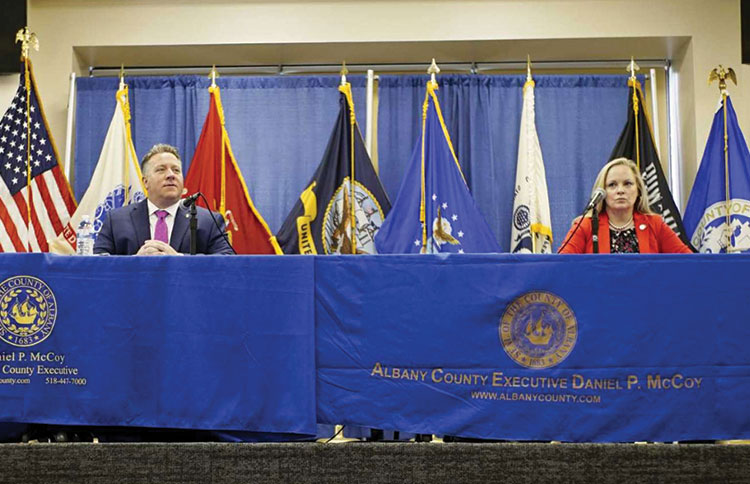
For me, the global magnitude of COVID-19 has been occasionally overwhelming. Despite all my years in public health, I don’t think I could have envisioned this unique set of circumstances and impacts. It has been heartbreaking to see the effects on our vulnerable populations, including those in nursing homes and congregate-care facilities. The nationwide lack of available testing early on was frustrating and made it difficult to understand the burden of disease in the community. The ongoing challenge with inconsistency in public messaging from federal leaders on appropriate guidance and response has been a tremendous hurdle.
In addition, I think the mental-health effects of the pandemic cannot be overstated. People with pre-existing conditions report worsening due to both isolation and uncertainty. The Albany County Department of Mental Health set up a hotline [(518) 269-6634] to help Albany County residents who need assistance during this time. For many, a qualified mental-health professional can be so beneficial. There are many ways to access services now, including a rising presence in telepsychology. I would advise anyone with concerns to reach out to their health-care provider or local department of health for resources. Help is available.
The most rewarding part of my work is seeing the inspirational dedication of our ACDOH staff. We have around 90 full-time workers, and everyone continues to step up to meet our many challenges. Staff works late evenings and weekends, and continually focuses on process improvement to ensure timeliness and effectiveness.
We know we are in this for the long haul and work together to streamline processes and avoid burnout, which is a challenge. I feel very lucky to work with this tremendously smart and committed group of people. Our Medical Reserve Corps volunteers, who include school nurses, teachers, and others, are also essential to a response of this magnitude.
It has been a joy to have Monroe Marshall [MPH] working with us. He is universally respected, and his work in contact tracing is essential to controlling the spread of COVID-19. [Marshall is profiled on page 22 of this issue.] The health department contacts every laboratory-positive case in Albany County the same day the test result is out to provide support and education and ensure that the case is isolated at home to decrease the risk of spread to others. We ensure this is done with daily phone calls and home check-ins, and we arrange needed services, like food delivery and prescription pick-up. We also identify contacts that may have been placed at risk by the case, and ensure they remain on home quarantine throughout the potential incubation period of the virus. This work is time intensive and requires training to be done well. I know through my own experience that the School of Public Health does a great job training graduate students, so we were very happy to have Monroe help us.
While most of us have never lived through an experience like this, there have always been infectious and other public-health threats, and with the rise of chronic disease and significant health-inequity and -disparity issues across the country, we need to promote how essential this workforce is. The federal government needs to re-evaluate the strengthening of public-health infrastructure. Our workforce needs significant reinforcement and support.
One unforeseen good that could come out of the pandemic is the time and strength put into family relationships. People who have stayed home have had the opportunity to slow down, spend more time with their immediate families, and analyze what is important in life. I am the mother of three teenagers who are normally all go – usually in different directions – all the time. They have become closer through this experience.
“Important and Necessary”
The work of public-health departments is “important and necessary,” Whalen notes, adding that ACDOH’s various divisions:
- Work with the NYSDOH to monitor and analyze county health data and mobilize community partnerships to address health concerns in our county using a collective impact strategy approach.
- Implement evidence-based public health programs and strategies to improve the health of Albany County residents.
- Offer pediatric dental services and childhood immunizations.
- Provide restaurant and pool inspections.
- Oversee children’s camps.
ACDOH:
- Works extensively towards the reduction of health disparities and inequities in at-risk communities.
- Holds clinics for sexually transmitted infections and tuberculosis.
- Conducts investigations for all reportable communicable disease.
- Educates the public on chronic disease and many public-health threats, such as pandemic and acts of bioterrorism.
- Provides home visits in high-risk neighborhoods to moms and babies and homes with asthmatic children.
- Provides and promotes many public-health partnerships, working with hospitals, first responders, law enforcement, schools, community-based organizations, and our sister county agencies.


